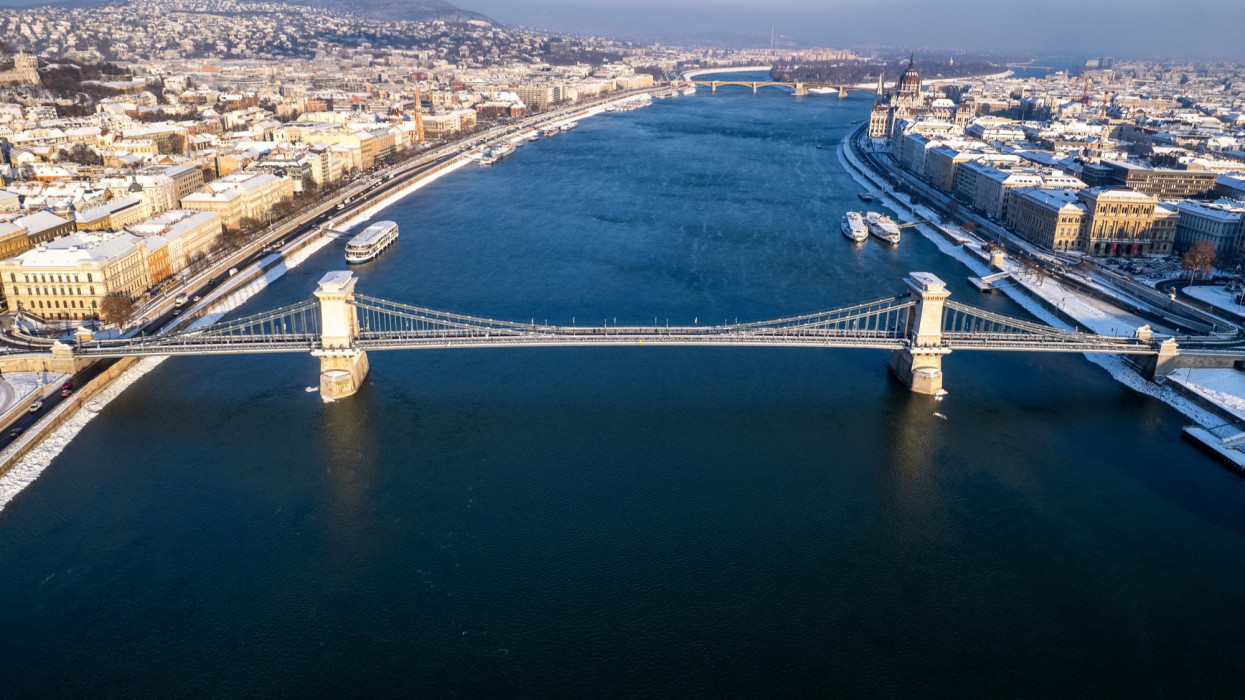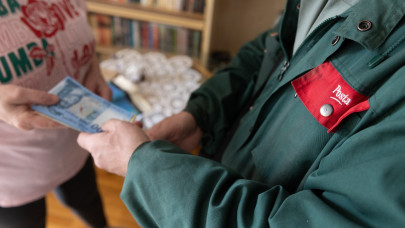Today the political, social and economic framework conditions for livestock farmers leave many questions open, both nationally and internationally. Where and how will animal production be carried out competitively in future? Farm managers need reliable policy framework conditions and professional concepts in order to render their farms fit for the future.
The world's leading trade fair for animal production, EuroTier, will be presenting innovations and trends for agriculture, providing direction for livestock farmers, at the Hanover Exhibition Grounds, Germany, from 13 to 16 November this year. 2,526 exhibitors from 62 countries will be showing a complete program covering modern animal production and solutions to the challenges of the future on an exhibition floor space of more than 260,000 square meters.
Every day during the show, the latest findings and proposed solutions will be discussed in a large number of expert presentations and discussion panels at EuroTier. The trade fair and its technical program are being organized by DLG (Deutsche Landwirtschafts-Gesellschaft – German Agricultural Society).
More exhibitors from abroad
The number of exhibitors from outside Germany continues to grow. With 1,484 companies (58.7 percent), the figure is higher than ever before. The largest contingent of foreign exhibitors comes from China (254 companies). The second place is held by the Netherlands (207), followed by France (128), Italy (120), Spain (85), Denmark (70) the United Kingdom (62), Austria (55), Turkey (55), Belgium (51), Poland (49), Canada (31) and the USA (29). DLG sees the high level of participation from outside Germany to mean that many companies in the field of international agribusiness are growing increasingly global and are specifically using EuroTier to develop new markets. Exhibitors from countries such as Morocco, Bangladesh, Vietnam, Hong Kong, Paraguay and Uruguay are taking part in the trade fair for the first time this year.
The German Association of Practicing Veterinarians (bpt) has again scheduled its international congress to overlap with EuroTier at the exhibition grounds in Hanover. This synergy creates opportunities for veterinarians and farmers, mainly from Germany, to engage in intensive dialogue, sharing their experiences and opinions on matters of animal health.
Cutting-edge innovations competition
Against this background, EuroTier's Innovations Commission has considered 250 innovations – from more than 300 submissions – in the competition for the EuroTier Innovation Award 2018, and has selected 26 of these products to receive one Gold and 25 Silver Medals. Many of these innovations contribute to further improving the keeping conditions for livestock, as well as the working conditions for farm employees. The assessment centered on criteria such as safety at work and improvement of working conditions, animal health, animal welfare and environmental compatibility.
Furthermore, DLG together with the German Association of Practicing Veterinarians (bpt) will for the first time present an “Animal Welfare Award” for products and solutions that make a particular contribution to satisfying the requirement for higher animal welfare standards.
With this program of information, EuroTier will provide direction for modern animal production worldwide, and provide key inspiration for individual farmers and the entire sector.
Framework conditions on the markets
This year's drought conditions have led to a decline in harvest yields not only in the EU, but also in major producer countries such as Russia and Ukraine. As a consequence, stocks of the major wheat exporters will probably drop by about 20 million metric tons and lead to a rise in wheat prices. Viewed at farm level, the harvest shortfalls of arable farmers will probably be partly compensated by price increases, but despite this, individual financial bottlenecks are to be expected for those farms affected by the drought.
Milk deliveries from German producers are now returning to normal following heat-related declines in production in July and August. In view of the scarce feed supplies, dairies are reckoning with a reduction in delivery quantities in the medium term. Some milk producers have been badly affected by the drought and will have to compensate the poor forage harvest by buying in third-party feed at high prices. In these regions, a decline in milk supplies by five percent is expected.
The scarce pig stocks in the summer led to generally firm prices for the pig finishers in the EU. However, a major problem for German sow farmers at present time is the lack of clarity about how matters will proceed with regards to piglet castration. The discussion on postponing the statutory target date of 1 January 2019 is in full swing, and there is currently no solution in sight. Furthermore, African swine fever is a major risk for the pig markets. New outbreaks in Romania, Bulgaria and China, as well as the first outbreak among wild boar in Belgium, represent a high risk potential for the pig sector.
“DLG-Agrifuture Insights” shows international willingness to invest
With DLG-Agrifuture Insights, DLG launched a new knowledge brand for international market analyses in 2017. It now provides trend analyses from globally important agricultural regions in nine countries – Germany, France, UK, Poland, the Netherlands, USA, Russia, Brazil and South Africa.
According to these analyses, the business climate in nearly all these countries, especially in Western Europe and Russia, deteriorated in 2018 as a result of the drought. Despite this, willingness to invest in Europe still lies above the long-term average. Following the recession in 2015/16, there is a need for replacements above all in the dairy sector. In some regions, dairy cattle farmers have to buy-in feed however because of the drought and will therefore have to postpone investments.
The mood among the US farmers, especially pig farmers, is depressed as a result of the trade conflict with China. Despite this, every second US farmer plans to invest in the coming 12 months. In South Africa, Russia and France, farm managers aim to fundamentally expand animal husbandry.
While in Western Europe the dairy cattle farmers view herd management and animal health as the greatest challenges, in the USA the focus is on securing cost-efficiency/profitability and satisfying environmental requirements.
Social environment becomes increasingly important
The social environment of animal production is playing an ever more significant role for animal farmers and their families. According to figures supplied by DLG-Agrifuture Insights in August 2018, farm managers worldwide are interested in how they can improve animal welfare and animal health. Furthermore, they consider innovations in techniques for digital animal identification and monitoring to be particularly important.
In Germany, France, Poland, Russia and the USA, pig farmers want to improve climate management in the animal housing. French, Polish and British dairy cattle farmers want to build new animal housing that caters more to animal welfare. In the Netherlands, animal housing is being modernized to satisfy environmental requirements. Animal farmers in Germany are investing chiefly to satisfy demands made of environment and animal welfare.
Guiding theme “Digital Animal Farming”
Probably no other innovation is occupying the agricultural sector so massively at present as digitization and this is being discussed correspondingly intensively. What are needed are progressive concepts that are adapted to the diversity of sites and locations, and strengthen competitiveness. Digitization will assume a leading role here and also contribute to reorganizing production processes, as well as delivery and value-creation chains.
With its guiding theme “Digital Animal Farming”, EuroTier 2018 is thus setting a priority area in its technical program. A cross-species special feature on Stand A06 in Hall 26 highlights the current developments in digital solutions for animal production.
EnergyDecentral 2018
About 310 specialist exhibitors have registered for EnergyDecentral 2018, the international trade fair for innovative energy supply taking place in parallel with EuroTier, the world's leading trade fair for animal husbandry. It is thus optimally integrated into the agricultural environment. It is being held in Halls 24 and 25, and on the open-air site north of Hall 26.
At this trade fair, everything revolves around energy from renewable energy sources such as biogas, biogenic solid fuels, combined heat and power (CHP) plant motor systems, wind power and solar energy. Concepts for self-supply and for provision of heat and electricity in line with requirements are becoming increasingly significant. By combining a photovoltaic system, a CHP motor system and intelligent storage, farmers are able to satisfy their own needs to a high degree.
An extensive technical program with the “BIOGAS Convention” of the German Biogas Association, the “European Bioenergy Future” (EBF) of BioenergyEurope, special features and discussion forums offers up-to-date information on trends in the industry as well as opportunities to network with experts.
High numbers of visitors expected
EuroTier is the world's leading trade fair for animal production professionals. With its unique range of product and information offerings, it will provide direction for animal farmers from all over the world. The DLG estimates this year's event will attract about 150,000 visitors.
Detailed information on EuroTier: www.eurotier.com







